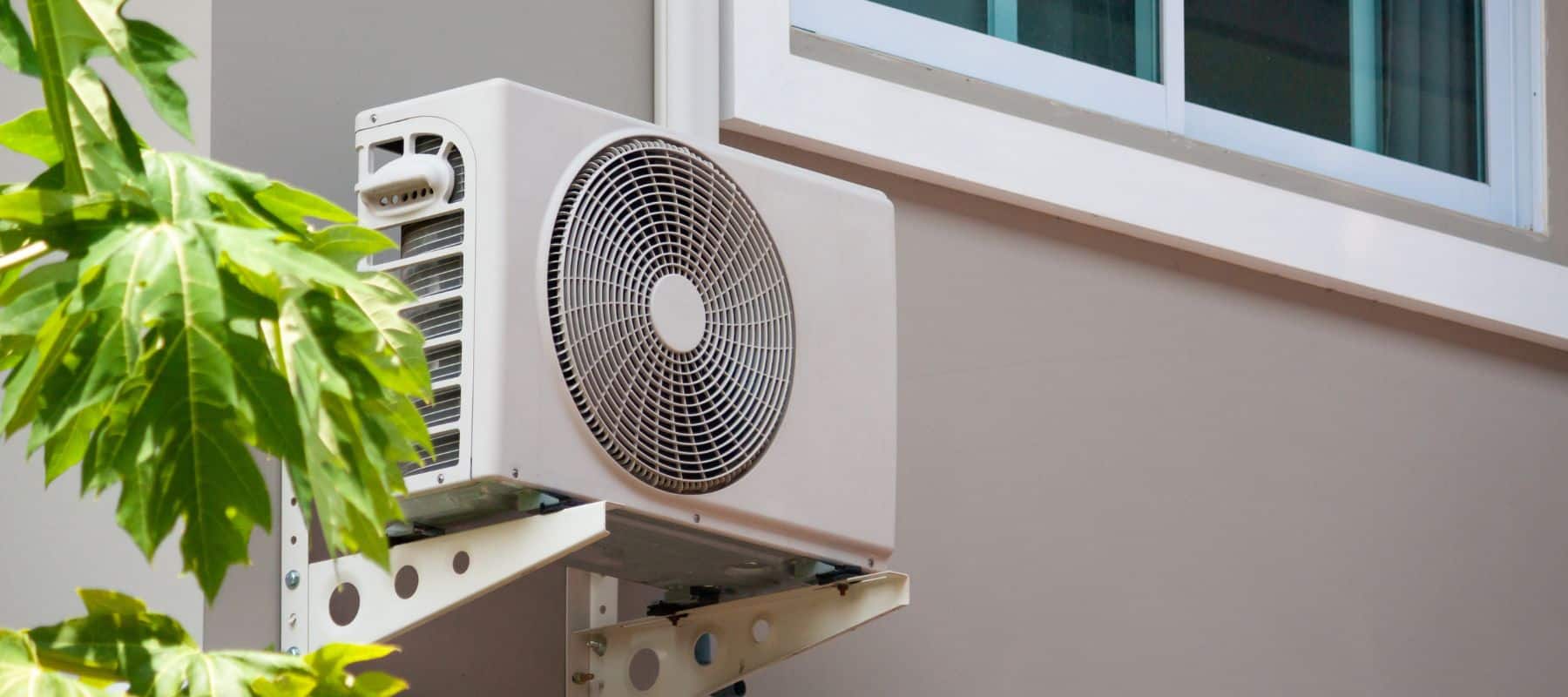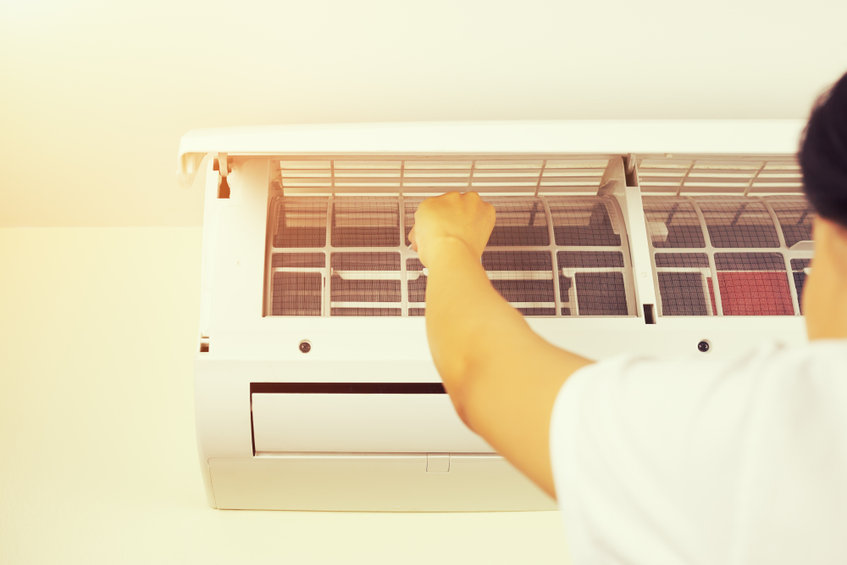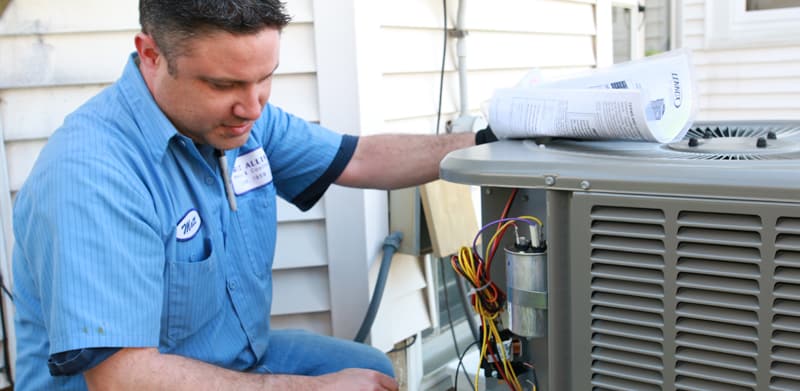Did you recognize that around 75% of house owners experience a/c sound problems at some point? When your a/c starts making strange sounds, it can be quite turbulent to your tranquility and convenience.
From rattling and buzzing to screeching and banging, these noises can show underlying issues that need focus. Recognizing the source of the noise is essential for efficient repair services and ensuring your air conditioning unit runs efficiently.
So, if you're tired of putting up with bothersome AC sounds interrupting your harmony, there are services available.
Trick Takeaways
- Normal upkeep is vital to deal with typical AC sound sources like ductwork issues and damaged motors.
- Address shaking noises by inspecting for loose parts, keeping fan electric motors, and including resonance isolation pads.
- Squealing and banging noises can be dealt with by examining belts, follower blades, and compressor coils for problems.
- Fixing air conditioning sound problems by conducting aesthetic assessments, carrying out soundproofing techniques, and fixing for blockages.
Common Air Conditioning Noise Resources
If your cooling system is making uncommon noises, maybe as a result of one of numerous common sources.
One regular offender is problems with the ductwork. Gradually, air ducts can establish leaks, loosened links, or perhaps clogs. These troubles can create air to flow erratically, leading to whistling or rattling noises. An extensive ductwork assessment by an expert can aid determine and remedy these problems, recovering your system's smooth operation.

Another common source of noise in a/c systems is a malfunctioning motor. The electric motor is a critical part that drives the followers and other moving components within the system. If the electric motor is worn out or harmed, it can generate grinding, squealing, or clunking sounds. In such situations, motor substitute might be essential to get rid of the source of the disturbance. Normal upkeep and prompt motor substitute when needed can assist maintain your cooling system running quietly and effectively.
Detecting Rattling and Buzzing Seems
To resolve rattling and buzzing noises in your cooling system, begin by inspecting the parts that might be creating these noises, such as loosened parts or damaged parts. Vibration isolation is key in resolving these concerns. Check for any kind of loose screws, screws, or panels that may be vibrating against each other during procedure. Tightening up these can often minimize the rattling sounds.
In addition, check the fan motor for any kind of signs of deterioration. Routine fan electric motor maintenance, such as lubrication and cleaning, can help in reducing buzzing audios caused by rubbing or malfunction.
If the rattling persists after checking and tightening up parts, think about adding vibration seclusion pads or installs to absorb the excess resonances. These pads work as a barrier between the vibrating components, decreasing the sound. Keep in mind that attending to these noises quickly can prevent further damages to your a/c system and guarantee its peak efficiency.
Addressing Screeching and Banging Sounds
When attending to screeching and banging noises in your a/c system, start by determining the source of the sounds via a comprehensive inspection of the system's components. Check the belt stress along with the motor bearings, as loosened belts or worn-out bearings can bring about squealing noises. Evaluate the follower blade for any type of obstructions or damages that may cause banging sounds when the follower revolves. In addition, analyze the compressor coil for any kind of particles or concerns that could be producing the sounds.
To deal with screeching sounds connected to belt stress, change the tension following the supplier's standards to make sure it's within the suggested array. If the electric motor bearings are the wrongdoer, think about lubricating them ideally; or else, they might require to be replaced. For banging noises caused by fan blade concerns, fixing or change the damaged blades quickly. When it pertains to the compressor coil, cleaning it extensively can often fix any kind of noise-related problems. By addressing these potential sources of squealing and banging sounds, you can recover your cooling system to its ideal functioning state.

Tips for Repairing Cooling Sound
When faced with cooling noise problems, beginning by performing an aesthetic examination of the device's components for any kind of visible indications of damage or wear. Seek loose parts, damaged belts, or particles that may be triggering the noise. If you discover any type of concerns, make sure to tighten up loose components, replace harmed components, and clear out any particles to see if the sound improves.
To deal with a/c noise issues, consider soundproofing methods to lower the sound transmission from the device. Protecting the wall surfaces around the unit, mounting soundproofing panels, or positioning rubber pads underneath the system can aid dampen the noise successfully.
Regular maintenance is vital to avoid air conditioning noise. Be particular that the device is clean, moisturized, and well-kept to lessen potential problems. Troubleshooting actions like inspecting the follower blades and motor for any type of obstructions can likewise aid identify and deal with sound troubles. ac repair For small problems, do it yourself options such as tightening up screws or readjusting components may resolve the sound without the need for specialist aid.
Ensuring Effective AC Operation
Guarantee your air conditioner runs efficiently by organizing regular maintenance checks and keeping the unit clean and well-lubricated. Ensuring your cooling system functions at its finest not just reduces noise but likewise decreases energy usage. To achieve this, apply noise reduction strategies such as placing resonance pads under the device to wet sound transmission and guaranteeing all components are safely tightened up. Furthermore, tidy or change air filters on a regular basis to prevent air movement obstructions that can stress the system and increase sound levels.
Power consumption optimization is important for reliable air conditioning procedure. Set your thermostat to an ideal temperature to prevent straining the device. Make use of ceiling followers to aid circulate great air more effectively, allowing you to increase the thermostat slightly without giving up comfort. Take into consideration setting up a programmable thermostat to readjust temperature levels instantly when you're away. By adhering to these methods, you can keep a comfortable interior environment while reducing power prices and sound degrees.
Regularly Asked Inquiries
Can Cooling Sound Degrees Influence the Top Quality of Indoor Air?
High cooling sound levels can influence indoor air high quality by adding to noise pollution, which can affect your health.
To resolve this, consider soundproofing solutions to decrease the sound from your air conditioning unit.
Exists a Connection In Between Cooling Sound and Energy Effectiveness?
When it involves a/c sound and energy efficiency, there's certainly a connection.
The loud sounds produced by your air conditioning unit can indicate ineffectiveness that lead to boosted power consumption.
By addressing and lowering the environmental pollution, you can improve the overall effectiveness of your system.
Just How Can I Lower A/c Sound Without Compromising the Cooling Efficiency?
To decrease a/c sound without endangering cooling performance, take into consideration soundproofing remedies like acoustic insulation.
You can maximize performance by tuning the system for performance while dampening unwanted sounds.
Attempt making sure all elements are effectively set up and preserved, and look for loosened components that could be causing extreme noise.
Exist Any Particular Regulations or Standards Pertaining To Appropriate Sound Levels for Cooling Units?
When it concerns a/c units, there specify guidelines and guidelines in place to ensure compliance with appropriate noise degrees. These criteria assist receive a comfy setting without triggering disturbances.
Regulations relating to noise degrees for air conditioning devices differ depending on place, but generally focus on reducing sound emissions to a level that doesn't disrupt everyday activities. It is very important to be mindful of these standards to make sure your unit meets the essential requirements.
What Are Some Long-Term Upkeep Tips to Prevent A/c Noise Issues in the Future?
To avoid cooling noise problems long-term, see to it you stick to regular upkeep. Tidy or change filters, look for loose components, and keep the system clean.
Consider soundproofing techniques like including insulation around the device. By remaining on top of upkeep and taking steps to minimize sound, you can appreciate a quieter and much more reliable a/c system in the future.
Conclusion
Since you have identified the usual sources of a/c sound and learned just how to identify and repair them, you can enjoy a quieter and extra reliable air conditioning system.

Remember to consistently check for any type of uncommon sounds and resolve them quickly to stop any kind of further damage.
By dealing with your a/c unit, you can ensure it operates smoothly and successfully for years to come.
